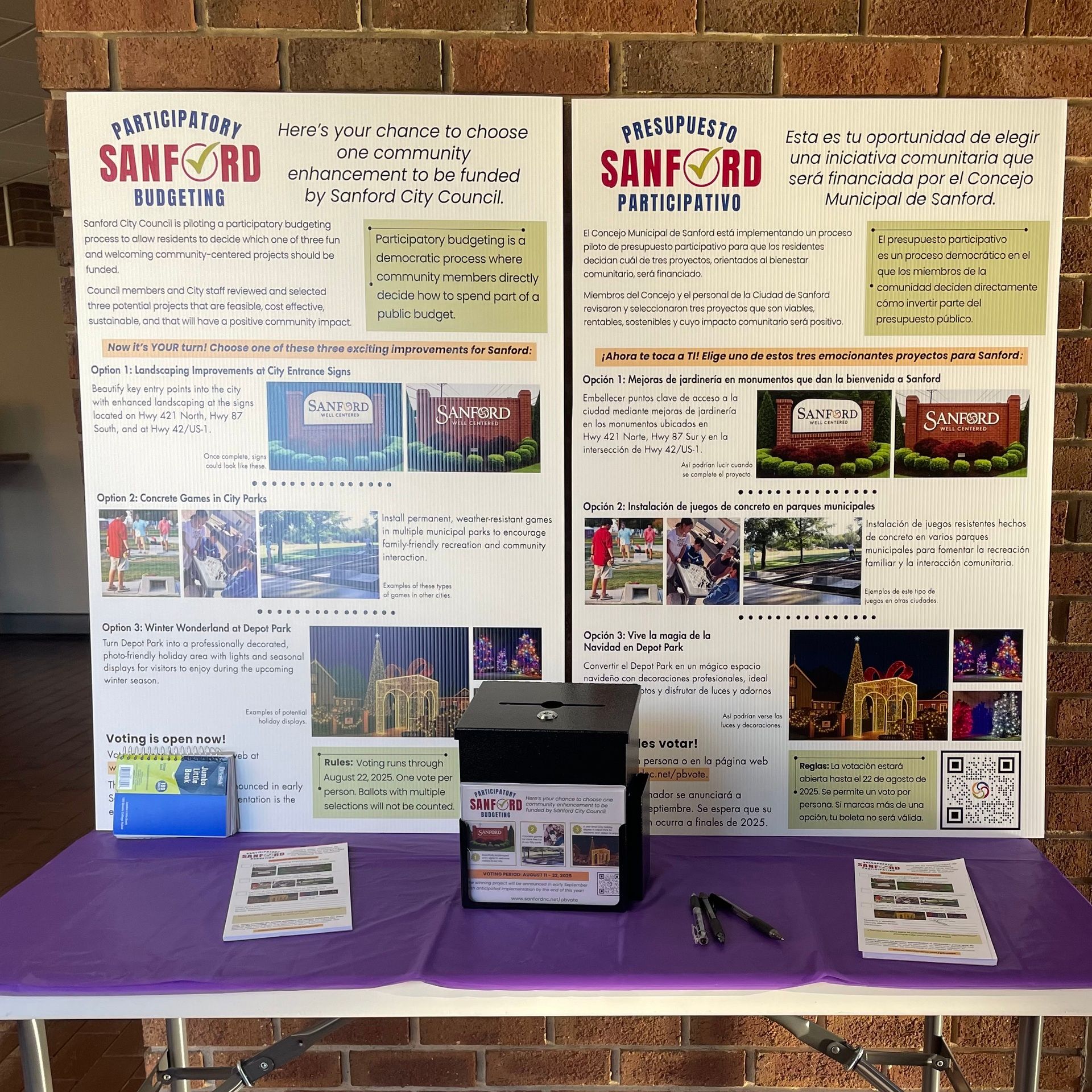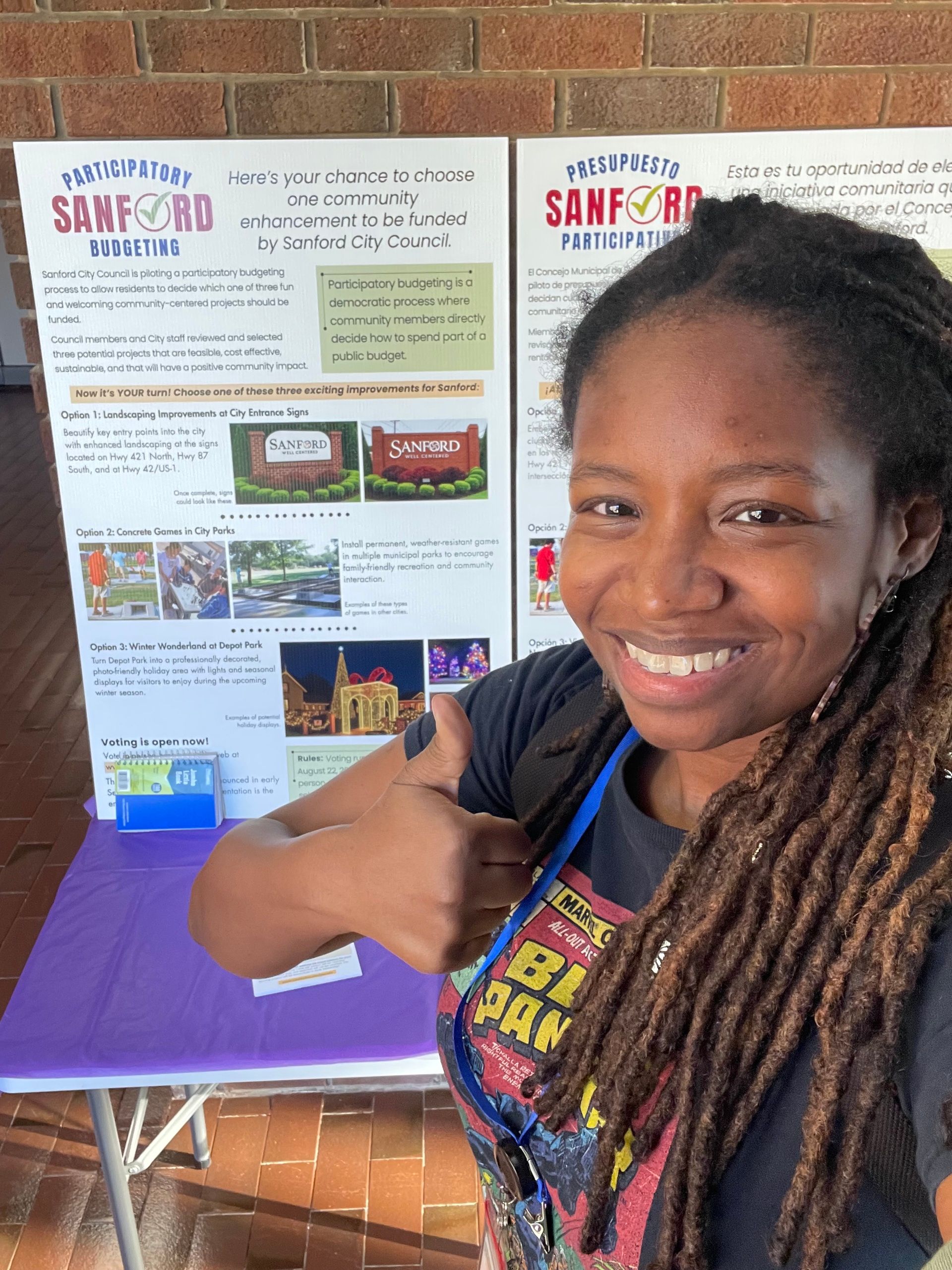This quote is from my favorite autonomous robotic hero, Optimus Prime.
Every day, we make choices that can change everything—or nothing. Some feel insignificant; others feel different. Sometimes we notice in the moment, sometimes later.
Last month, I got a taste of that.
I had just pitched my first local story on the No Kings protests in Pittsboro and Sanford. I wasn’t sure it would be picked up, but I had to try. I needed local bylines to establish myself as a journalist when I pitched my environmental story to a larger publication as part of my Wake Forest University reporting fellowship.
With that motivation in mind, I decided to attend a city council meeting. I had no idea what to expect. I didn’t know where it was, any of the officials, and I only just figured out how to download the agenda.
But I went, with a mix of “F*ck it” and “oh god, here we go” energy.

It was interesting to see the back-and-forth between council members and the dull proceduralism that often accompanies it. The highlight, however, was the person who shared their personal experience with flooding during the public comment section. More on that later.
At the end of the council meeting, walking outside the beige and brown council chambers, the woman behind me dropped all her loose papers. Yup, I’ve been there.
I didn’t hesitate to help, but as a result, I was one of the last people to leave the hallway towards the exit. I slowed my steps, studying some of the historical pictures and documents that lined the hall, when I came upon an older white woman and a young Black man discussing the history of the pieces and the building itself. I was interested, but I didn’t want to be rude, so I respectfully passed by them with a polite nod.

I noticed the people of color in the third panel, whether intentionally or due to natural wear or other factors. Then, in the last panel, you can see the company’s connection to cellular technology.

The plaque explaining the history behind the art and the Heins Telephone Company.
That is, until I heard her say that she was an editor and had just launched her digital outlet, Sandhills News, just ten days prior.
Y’all. The quickness with which I turned around 🌪
In seconds, I introduced myself to Stephanie M. Sellers, a former reporter with the Sandhills Sentinel, and the young man, Chris Petty, who would later run for City Council. Having that conversation in front of the independent communications art felt like a curious bit of fate (something I only realized while writing this out).
But what I didn’t know then was that just three weeks later….I’d lose not one but both of my jobs.
After more than a decade of steady work, sudden unemployment hit me like a punch to the face. Optimus’ quote reeled through my head as I tried to find reason in the chaos.
But that’s the thing about fate: sometimes it deletes all the messages in your phone, and it feels like you’ve lost everything. And yet, it also clears space for something new to find you.
That hallway conversation → the one I could’ve missed if I hadn’t picked up those papers or walked past out of politeness ← made way for what’s next for me.
Because let’s fast-forward another four weeks: I have nearly a dozen bylines, and I’m working on three more with Sandhills News. I have a freelance contributor role in the works, and I’m hearing back from residents in Petty’s ward for my next story.
That’s what this weekly-ish series, Scout’s Compass, is all about: following the unexpected twists and turns of my reporting journey.
You’ll see the wins, the missteps, the moments that make me laugh, and the moments that make me wonder if I’m even doing this right.
It’s about the fateful choices, the persistence, and the paths we carve along the way.
Here’s to issue one—and heeding the call.

The business card Stephanie M. Sellers shared with me on July 1, 2025, following the City Council meeting. Sanford, NC.
Picking Up The Phone
To be frank, my biggest challenge with reporting for Sandhills News hasn’t been the reporting itself, but rather getting someone on the phone.
It’s not that I mind calling people. It just feels like emailing is more efficient. Folks get time to gather their thoughts, I get cleaner quotes, and everything’s in writing. Win-win, baby.
Except this particular story—one I’ve had simmering on the back burner—demanded official sourcing. It was built around several climate-related events, the kind of thing I love to dig into — cómo se dice my journalist bread and butter.
What were those events?
June: I received a tip about the flooding around Little Buffalo Creek in Downtown Sanford that caught locals unprepared.
July: Tropical Storm Chantal dumped over ten inches of rain across North Carolina in just a few hours, leading to at least six deaths and millions in damage down the central swath of the state.
August: An atmospheric river washed out the rest of July and the first two weeks of August for most of North Carolina.
These events raised a big question for me:
How will the city and county adapt to a changing climate? 🌎
🖐 Let me put you on hold
I had no idea if my reporting approach would work 😅
Every time I hit “send” on an email, tap the little green phone symbol, or walk into an office, government building, and in one case, an actual barn, I’m banking on hope and a healthy dose of “shit shit shit, what am I doing here?”
I went for broke on all three for this particular story, unsure what would stick for my latest look at water drainage and emergency preparation in Lee County. My fingers were crossed that SOMETHING would work out.
(Here are a few TikToks where I captured some of those reporting efforts 👀)
@curious.scout Local #reporting work in Sanford NC #journalist #reporter #environment #northcarolina follow my newsletter on beehiv! The Curious Scout 🤓
⭐ Two highlights in the midst of these reporter efforts ⭐
I stopped into Kathy’s Java Express, a lovely coffee-slash-diner spot in Downtown Sanford that has butterbeer-flavored frappes that I need to sample every time I go because obviously theme-park accuracy tests are essential, then borrowed some Wi-Fi from Family Grounds Coffee before heading over to City Council 🚘
@curious.scout Update before heading into the Sanford City Council meeting on Tues. Aug 19 follow The Curious Scout on Beehiv! #northcarolina #reporting #journalist
That night’s meeting was pretty typical and had no real news to report, but I did cast my vote for Sanford’s Participatory Budget before the Friday deadline. Yay for small civic victories!

English and Spanish boards explaining the three potential community-centered projects for which residents were voting.

“Vote before the deadline.” Mission complete.
📵 Your call cannot be completed as dialed.
Later in the week, my editor suggested that I email one of the city’s public works engineers, which I did on Wednesday, Aug. 20. I’m still crossing my fingers for a meeting during the week of Aug. 25.
But just in case, I decided to call the transportation administrator one more time on Thursday, Aug. 21.
@curious.scout Calling Public Works a few days after showing up! #northcarolina #reporting #journalist #reporter #local
Honestly, I hadn’t been leaving voicemails. I figured, why bother these folks even more?
But recording myself via Zoom while on the phone made me realize that I really should be leaving messages. I owe it to the people who’ve had their properties flooded and damaged all summer and shared their concerns with me and my editor.
Plus, sending an email doesn’t guarantee a reply.
Except in this case, it did 😆
@curious.scout Finally heard back from Public Works! Story should be live soon #northcarolina #reporting #journalist #news
The answers Fedd Walker and his Public Works team sent didn’t tie everything up neatly (no surprise there).
Still, they provided me with the framework for my upcoming story, the next round of questions, and, importantly, momentum for my next climate story.

Source: Lee County GIS Strategic Services
Journalism, like most of life, is full of calls we didn’t make, chances we didn’t take and things we didn’t create. But it’s also full of chance encounters. And it’s those moments of fate that keep me, and my story, moving.
☎️ Before we hang up:
Thanks for joining me on this inaugural edition of Scout’s Compass! 🧭
These weekly notes are my way of keeping you informed about the twists, turns, and even the stumbles of my reporting journey.
If you’re looking for the bigger picture with highlights from my work, updates from colleagues, media conferences, valuable resources, and the curious finds I can’t help but share, that’s what you’ll find in my monthly newsletter, The Curious Scout, so make sure you subscribe!
And if you feel so inclined, you can digitally buy me a(nother) butterbeer frappe as I traverse the Tri-County, roll up on government offices, and connect with hundreds of residents on my journalistic endeavors!


Diara J. | $CuriousScout


